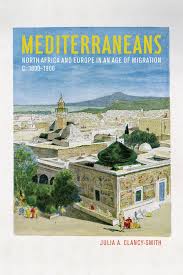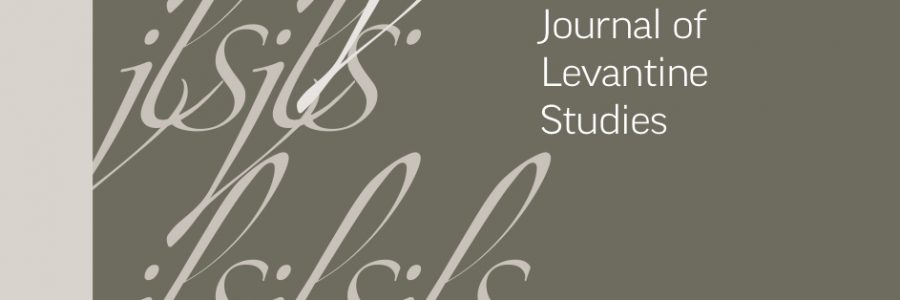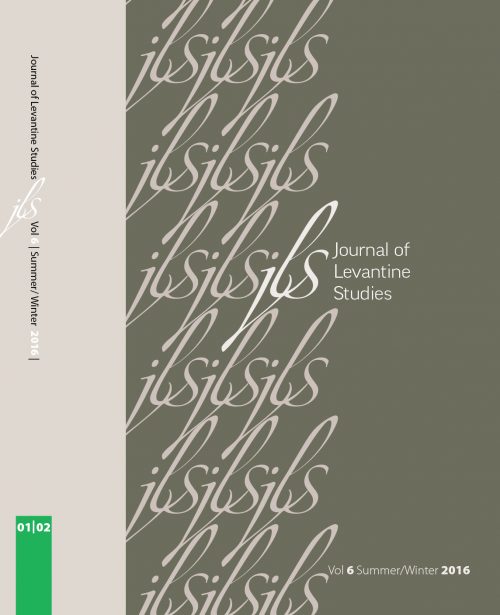-
Add to cartQuick view
Elizabeth F. Thompson. Justice Interrupted: The Struggle for Constitutional Government in the Middle East. Cambridge, MA: Harvard University Press, 2013. 432 pp.
Elizabeth F. Thompson. Justice Interrupted: The Struggle for Constitutional Government in the Middle East. Cambridge, MA: Harvard University Press, 2013. 432 pp.
$5.00Free!Add to cartQuick view -
Add to cartQuick view
Review Essay: The Transforming Landscape of Turkey’s Alevi Politics
Free!Review Essay:
Elise Massicard, The Alevis in Turkey and Europe: Identity and Managing Territorial Diversity. New York: Routledge, 2013. 255 pp.Necdet Subaşı, Alevi Modernleşmesi: Sırrı Faş Eylemek. İstanbul: Timaş, 2008. 320 pp.Add to cartQuick view -
Add to cartQuick view
Julia Clancy-Smith, Mediterraneans: North Africa and Europe in an Age of Migration, c. 1800-1900, Berkeley: University of California Press, 2011. 445 pp.
Julia Clancy-Smith, Mediterraneans: North Africa and Europe in an Age of Migration, c. 1800-1900. Berkeley: University of California Press, 2011. 445 pp.
$5.00Free!Add to cartQuick view -
Add to cartQuick view
Being Muslim and European Without Contradiction—Myth or Reality?
Free!The article reviews a critique of European modernity through the eyes of Bassam Tibi, a European Muslim sociologist. Tibi’s discursive analysis presents a detailed description of how an Islamic pluralism addresses the conceptual, philosophical, cultural, social, and political interpretations of Islam in a European context. His Islamic pluralism suggests the ways in which a secular interpretation of Islam can influence religion-state relations in Europe. Exploring the tensions resulting from being both Muslim and European, Tibi proposes that Muslims in Europe avidly maintain some basis of Islam within their identity, even if they adapt that interpretation to make it compatible with European norms and values. His perspectives are juxtaposed with Muslim intellectual opposition to a European Islamic pluralism that offers a basis for Islamic diversity in Europe. The article concludes that even Tibi’s moderate interpretation of Islam does not fully eliminate the inherent contradiction involved in being both Muslim and European, although he does suggest a means of bridging cross-cultural tensions.
Add to cartQuick view -
Add to cartQuick view
Terrorist and Refugee in the Mediterranean—A European Dilemma
Free!The migration crisis in Europe that coincided with a wave of terrorist attacks attributed to ISIS has exacerbated the dilemma between the desire of states to secure their territory and the European tradition of open borders and inclusion. European states have redefined both their migration policies and security measures in a climate of crisis and emergency that does not accurately reflect either the issues that have contributed to the current instability or the long-term nature of the terrorist threat. Instead, a systematic conflation is created between terrorism and migration by a number of states in the Mediterranean region. The aim here is to identify this conflation and show how it is manifested in the juxtaposition of exclusion and crisis narratives and the adoption of legal measures that overlap both security and migration. The article introduces preliminary findings on the topic and forms the basis for further research that might provide answers for states and for the EU as an organization that will address security agendas and migration policies within the framework of the European human rights tradition. Focusing on counterterrorism and migration measures and using policies and official statements by government officials, the article examines the links and influences between them.
Add to cartQuick view -
Add to cartQuick view
“Anticonverso” Trends among Converted Jews in Seventeenth-Century Europe
Free!In the second half of the sixteenth century, and especially during the seventeenth century, the Iberian Peninsula became a magnet for Jews who had never been conversos, or who came of age as Jews. These men, who produced anti-New Christian discourses—as can be seen in some inquisitorial trials or in great intellectual debates—are perhaps best represented by João Baptista d’Este. In some cases New Christians were the major targets of their diatribes, even when their objective was, in an essentialist plan, to reiterate the fallaciousness of the Jews and of Judaism. The pressing question, also reiterated by Old Christians, was the New Christians’ supposed duplicity, often equated with iniquity, from which the new catechumens wished to distance themselves. The proof of the “falsity and ambiguity” of the conversos resorted to examples that were sometimes manufactured from their everyday life and from a “failed” plan to integrate another minority, the Moriscos, though their resounding expulsion became an equally ideal destiny to apply to the New Christians.
Add to cartQuick view
- Home
- About JLS
- Issues
- Vol. 9 No. 1 | Summer 2019
- Vol 8 No 2 Winter 2018
- Vol. 8, No. 1: Summer 2018
- Vol. 7, No. 2: Winter 2017
- Vol. 7, 1: Summer 2017
- Vol. 6, Summer/Winter 2016
- Vol. 5, No. 2 Winter 2015
- Vol. 5, No. 1 Summer 2015
- Vol. 4, No. 2 Winter 2014
- Vol. 4, No. 1 Summer 2014
- Vol. 3, No. 2 Winter 2013
- Vol. 3, No. 1 Summer 2013
- Vol. 2, No. 2 Winter 2012
- Vol. 2, No. 1 Summer 2012
- Vol. 1, No. 2 Winter 2011
- Vol. 1, No. 1 Summer 2011
- Blog
- dock-uments
- Subscribe
- Submit
- Contact




